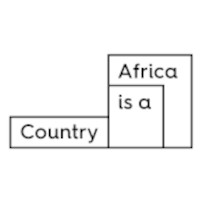With the working classes down and out, it is arguably the middle classes that will play the more decisive role in African politics going forward.
Photo by Emmanuel Ikwuegbu on Unsplash.
On Thursday, South African president Cyril Ramaphosa delivered the country’s State of the Nation Address. The speech was something of a dead-rubber, received by the majority of South Africans as packed with more empty promises and questionable plans for how to steer things away from disaster. One announcement was that the country’s energy crisis will be declared a national state of disaster, and alongside a Minister of Energy, a Minister of Electricity in the presidency will be added.
The 2024 elections couldn’t come soon enough. Many pollsters predict that Ramaphosa’s party, the ruling African National Congress, will dip below 50% of the national vote for the first time. Its plummeting numbers however, will not benefit the country’s opposition. Both the Democratic Alliance and Economic Freedom Fighters are scorned, politically unserious, opportunistic flip-floppers. The DA, having demanded a state of disaster in November, is now preparing to take the government to court for declaring one. The EFF disrupted the state of the nation address by trying to prevent the president from speaking, and eventually had to be ejected. Both parties are out of ideas, and can only throw up hollow opposition to the ruling party.
The beneficiaries of the ANC’s collapse, as we have written about, will likely be new entrants to the country’s political scene, who exploit popular frustrations with populist agitation around issues such as corruption, crime, and immigration. Although similar populist come ups in other parts of the world—like Brazil—depended on aggrieved elites and middle-classes, a possible hurdle for South Africa is the small size of the South African middle class.
But a dynamic worth getting to grips with is taking shape in African politics, namely the outsized influence of the middle class in setting the political agenda and laying the discursive environment. Nigeria is helpfully illustrative of this. Heading to its general elections this February, it is not the established parties, the All Progressives Congress (who governed for the last eight years under Muhammadu Buhari) and Peoples Democratic Party (the PDP’s Goodluck Jonathan was Buhari’s predecessor), that is projected to win. Instead, it is the country’s Labour Party led by Peter Obi, a business magnate who defected from the PDP. Young Nigerians are attracted to his seeming “outsider” image, his good governance politics, and his entrepreneurial background, which exemplifies the dream of upward mobility that evades many young Nigerians. Increasingly, this is the kind of candidate with appeal in Africa, where young, educated, downwardly mobile and media-savvy professionals play an influential role in politics.
On the latest podcast, I chatted to Sa’eed Husaini and O.A.G about the political climate in Nigeria and how to explain Obi’s meteoric rise—his supporters even call themselves “Obidients.” It is a rise that is startling for how a relatively small constituency, in the grand scheme of things, has managed to catapult Obi to the front, seemingly out of nowhere. It is worth a listen. And it is also worth theorizing about the continent’s middle class—its subdivisions (between small business owner and professional-managerial, say), its cultural distinctions, and so on. With the working class down and out, it is arguably the middle class that will play the more decisive role in politics going forward.
The task of a revitalized left in Africa is to appeal to the middle class squeezed by neoliberalism. In Africa, the working class lacks the sufficient numbers to constitute a formidable political force. A counter-hegemonic coalition requires the vast ranks of the unemployed and under-employed, as well as progressive wings of the middle class. Failure to treat the middle class as a base worth seriously engaging, gives a free pass to the populist right or to third-way neoliberals (which is sort of the politics of Obi) to capture them.






